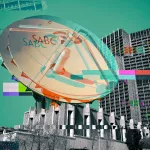TURNING THE PAGE
Literature showcase — Berlin plays host to a hugely successful African Book Festival

Interest in homegrown literature has been steadily growing in Germany, which held the latest edition of the event. Enthusiastic readers packed the halls to dip into the 60 exciting books on offer.
African literature is growing in popularity in Germany, and it is no surprise that the capital city is becoming the heartbeat of this interest.
Berlin has a strong literary history and identity, and an active literary social life that permeates every class and generational subgroup, from the discreet monied elites of the old West Berlin to the wildly mixed anti-fashion youth concentrated around the city’s vibrant central and east-central localities.
Berlin’s literary calendar is jam-packed. There are more book-related events here in half a year than there are in the whole of South Africa in 12 months. The circuit of readings, festivals, events, discussions and prizes is enormous.
African literature has quietly come to stand amid this melee and take up space for itself in a book festival that has drawn thousands of readers in the five years since its inception.
The Berlin African Book Festival (ABF) is focused on African and African diaspora literature, and recently had its fifth iteration.
The first, in 2018, was curated by the London-based Nigerian-German writer Olumide Popoola. The second by the Zimbabwean Tsitsi Dangarembga. The third — a spectacular juggle of an event that kept being cancelled, postponed and generally hamstrung by the Covid lockdown — was deftly adjusted and adapted by the Angolan Kalaf Epalanga.

South African writer Niq Mhlongo, who is based in Berlin, is a regular at the festival. (Photo: Supplied)
Last year’s curation was done by the South African writer and photographer Lidudumalingani Mqombothi. South Africans who have attended the ABF in the past include Zukiswa Wanner and Mphuthumi Ntabeni. Niq Mhlongo, who is currently based in Berlin, is a regular. The literary novelists CA Davids and Fred Khumalo were on panels this past weekend.

Sout African novelist, editor and writer, CA Davids. (Photo: Supplied)
ABF 2023 would have been curated by Mohamedou Ould Slahi Houbein from Mauritania — who spent 14 years in the infamous Guantánamo Bay detention camp from 2002 and wrote the book Guantánamo Diary — but for complex political reasons was let go so the book fair could hang on to its funding and continue its work of bringing African literature to Germany. In his place, the festival’s three organisers stepped in.

South African journalist and author Fred Khumalo. (Photo: Supplied)
Passionate beginnings
Stefanie Hirsbrunner, Karla Kutzner and Venice Trommer came together through a shared interest in African politics and literature, and started the festival five years ago.
It’s not that Berlin ignored African literature until 2018. African writers have almost always been included to some degree or another, but their presence at festivals hovered at the margins. Their books were read with an interest in education and to learn about other people in other countries, other societies.
“Writers were invited not so much as artists,” Trommer says, “but more as spokespeople for their country or an entire continent. The idea of the African Book Festival was to talk about the literature — the craft and the art of writing, as well, of course, as addressing the topics that are dealt with in the books.”
One of the key aspects of any book festival is the ability of attendees to buy the books of the authors they have heard speak. In 2018, not that many books by non-German people of colour had been published in German. At the first festival, many of the guests had to arrange to bring books from their countries. It was logistically and financially complicated.
Trommer, Hirsbrunner and Kutzner had been looking for new office space and decided to find something they could turn into a bookshop so that they could handle the book sales at the next festival — which is how Interkontinental Bookshop came into being.
There is nothing on the outside of the cosy shop on the quiet cobbled street in Friedrichshain that identifies it as having an African focus, but it has become one of the city’s go-to stops for international visitors, and for young, queer and black Berliners.
For the locals in the area, it doesn’t take too long to notice that the shop leans towards the writings of Africans and Africans in the diaspora. The reaction is usually curiosity and then, sometimes, a bit of shame. People often say, “I don’t know anything about African literature”.
Trommer says she tells them, “If you can read, then you don’t need to know anything about African literature. It’s a book. It’s literature. It will carry you to another place like books always do. Just pick what looks interesting”.
Of the more than 60 books presented at the ABF 2023, only 14 have been translated into German, with AfrikAWunderhorn (which has published many South African poets) and Orlanda the main publishers of African writing in translation.
Interkontinental felt it could contribute to the growing interest and began translating and publishing too.
The interest in books by Bipoc (black, indigenous and people of colour) writers increased steeply in 2020 in the weeks after the public murder of George Floyd by police in the US. Three years on, the interest has only slightly tapered off.
What started as “just” a book festival became a commercial book venture to distribute more widely books by Africans available in German, and then into a translation and publication agency.
“We were always glad about books being published into German, but there were also books in our shop that were dear to our hearts and we wanted to see them published in German,” says Trommer.
“You wait and nobody does it. The thing you want is not happening. So then you think, maybe it’s worth trying to do it yourself.” DM
This story first appeared in our weekly Daily Maverick 168 newspaper, which is available countrywide for R29.

















 Become an Insider
Become an Insider
Comments - Please login in order to comment.